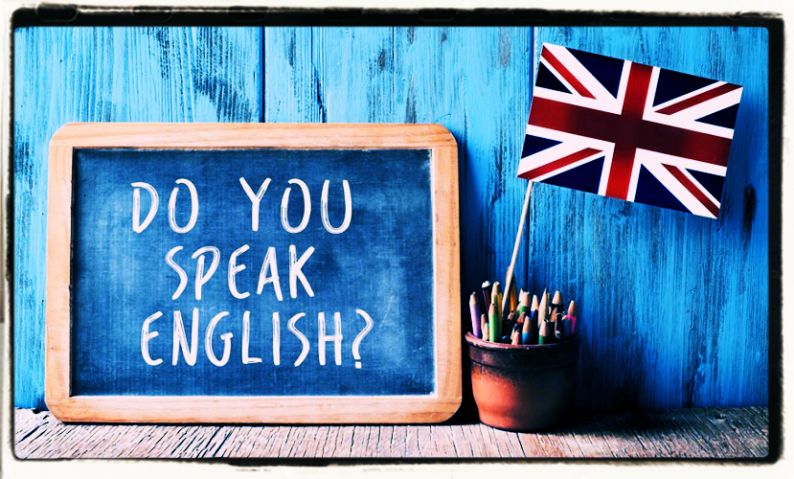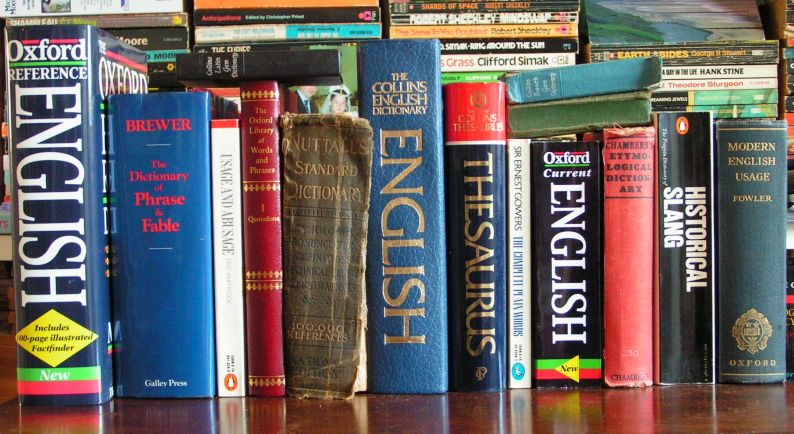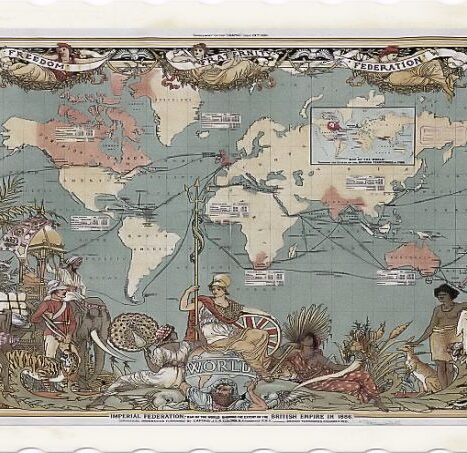
World English diffusion, English as a global world language and the various reasons of its wide diffusion through the centuries on the globe.
I know your head aches. I know you’re tired. I know your nerves are as raw as meat in a butcher’s window. But think what you’re trying to accomplish – just think what you’re dealing with. The majesty and grandeur of the English language; it’s the greatest possession we have.
George Bernard Shaw
Language is the road map of a culture. It tells you where its people come from and where they are going.
Rita Mae Brown
Are you one of those people who uses words more for the sound than for the sense of them?
Dean Koontz
Oh, God, I don’t know what’s more difficult, life or the English language.
Johnathan Ames
Summer afternoon – summer afternoon; to me those have always been the two most beautiful words in the English language.
Henry James
England and America are two countries separated by the same language.
George Bernard Shaw
English is flexible: you can jam it into a Cuisinart for an hour, remove it, and meaning will still emerge.
Douglas Coupland
The English language is like London: proudly barbaric yet deeply civilised, too, common yet royal, vulgar yet processional, sacred yet profane.
Stephen Fry
The barrier of language is sometimes a blessed barrier, which only lets pass what is good. Or, to put the thing less cynically, we may be better in new clean words, which have never been tainted by our pettiness or vice.
E. M. Forster
English is the language of a people who have probably earned their reputation for perfidy and hypocrisy because their language itself is so flexible, so often light-headed with statements which appear to mean one thing one year and quite a different thing the next.
Paul Scott
I came here and realized how truly limited my English was and it was very scary. I soon realized it wasn’t going to be hard to learn – it was going to be nearly impossible.
Salma Hayek
I know grammar by ear only, not by note, not by the rules.
Mark Twain

Because English is so widely spoken, it has often been referred to as a “world language,” the lingua franca of the modern era. It is, by international treaty, the official language for aerial and maritime communications. It is an official language of the United Nations and many other international organizations, including the International Olympic Committee. Modern English, sometimes described as the first global lingua franca, is also the dominant international language in communications, science, business, aviation, entertainment, radio, internet, and diplomacy.
Some years ago for instance, a decision of the Dutch government shocked the other European countries: in Dutch universities some courses may be given in English instead of Dutch. In fact, most courses in information technology, medicine, engineering, economics and so on include a lot of English terminology in every other language of the world. English is the language most often studied as a foreign language in the European Union (by 89% of schoolchildren), followed by French (32%), German (18%), and Spanish (8%).
English is a West Germanic language that originated in England and is the first language for most people in the United Kingdom, the United States, Canada, Australia, New Zealand, Ireland and the Anglophone Caribbean. It is used extensively as a second language and as an official language throughout the world, especially in Commonwealth countries and in many international organizations. Historically English originated from the dialects, now called Old English, which were brought to England by Anglo-Saxon settlers, beginning in the 5th century.
The language was heavily influenced by the Old Norse language of Viking invaders. The Norman conquest brought a stage called Middle English with heavy borrowing of vocabulary from Norman French and modernization of spelling conventions. Modern English continues to adopt foreign words, especially from Latin and Greek.
The initial reason for its enormous spread beyond the bounds of the British Isles, where it was originally a native tongue, was the British Empire, and by the late nineteenth century its reach was truly global. It is the dominant language in the United States, whose growing economic and cultural influence and status as a global superpower since World War II have significantly accelerated adoption of English as a language across the planet.

Nowadays a working and cultural knowledge of English has become a requirement in a number of fields, occupations and professions such as medicine and as a consequence over a billion people speak English to at least a basic level. All this has slowly led to another fact: the world’s lingua franca is now English. It is a particular kind of English, though: it is simpler than the English spoken by native speakers, and its pronunciation is half way between British English, American English, and other for of spoken English.
This kind of English is spoken in international conferences, fairs trade, international organizations, and so on. The British Empire comprised the dominions, colonies, protectorates, mandates, and other territories ruled or administered by the United Kingdom, that had originated with the overseas colonies and trading posts established by England in the late 16th and early 17th centuries. At its height it was the largest empire in history and, for over a century, was the foremost global power.
By 1922, the British Empire held sway over a population of about 458 million people, one-quarter of the world’s population, and covered more than 13,000,000 square miles (33,670,000 km2): approximately a quarter of the Earth’s total land area. As a result, its political, linguistic and cultural legacy is widespread. At the peak of its power, it was often said that “the sun never sets on the British Empire” because its span across the globe ensured that the sun was always shining on at least one of its numerous territories.
The growth of Germany and the United States eroded Britain’s economic lead by the end of the 19th century. Subsequent military and economic tensions between Britain and Germany were major causes of the First World War, for which Britain leaned heavily upon its Empire. The conflict placed enormous financial strain on Britain, and although the Empire achieved its largest territorial extent immediately after the war, it was no longer a peerless industrial or military power.
Despite emerging victorious, the Second World War saw Britain’s colonies in South-East Asia occupied by Japan, which damaged British prestige and accelerated the decline of the Empire. Within two years of the end of the war, Britain granted independence to its most populous and valuable colony, India. During the remainder of the 20th century, most of the territories of the Empire became independent as part of a larger global decolonization movement by European powers, ending with the return of Hong Kong to the People’s Republic of China in 1997.

After independence, many former British colonies joined the Commonwealth of Nations, a free association of independent states. Sixteen Commonwealth nations share their head of state, Queen Elizabeth II, as Commonwealth realms. Fourteen territories remain under British sovereignty, the British overseas territories. The Commonwealth of Nations, often referred to as the Commonwealth and previously as the British Commonwealth, is an intergovernmental organization of fifty-four independent member states, all but two of which were formerly part of the British Empire.
The member states co-operate within a framework of common values and goals as outlined in the Singapore Declaration. These include the promotion of democracy, human rights, good governance, the rule of law, individual liberty, egalitarianism, free trade, multilateralism and world peace. The Commonwealth is not a political union, but an intergovernmental organization through which countries with diverse social, political and economic backgrounds are regarded as equal in status. Its activities are carried out through the permanent Commonwealth Secretariat, headed by the Secretary-General; biennial Meetings between Commonwealth Heads of Government; and the Commonwealth Foundation, which facilitates activities of non-governmental organizations in the so-called “Commonwealth Family”. The symbol of this free association is the Head of the Commonwealth, which is a ceremonial position currently held by Queen Elizabeth II.
Elizabeth II is also the monarch, separately, of sixteen members of the Commonwealth, informally known as the Commonwealth realms. As each realm is an independent kingdom, the Queen, as monarch, holds a distinct title for each, though, by a Meeting of Commonwealth Prime Ministers in 1952, all include the style Head of the Commonwealth at the end; for example: Elizabeth the Second, by the Grace of God, Queen of Australia and of Her other Realms and Territories, Head of the Commonwealth. Beyond the realms, the majority of the members of the Commonwealth have separate heads of state: thirty-three members are republics, and five members have distinct monarchs: the Sultan of Brunei; the King of Lesotho; the Yang di-Pertuan Agong (or King) of Malaysia; the King of Swaziland; and the King of Tonga.

